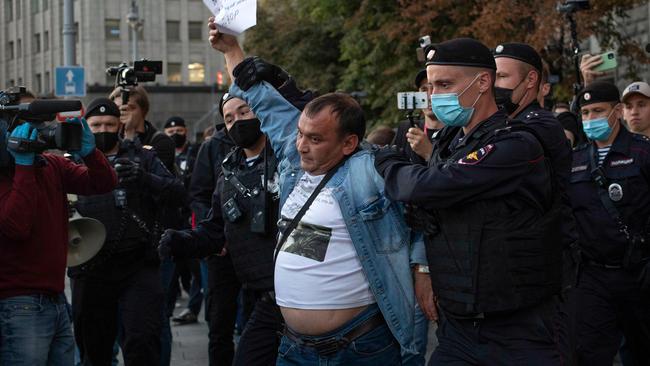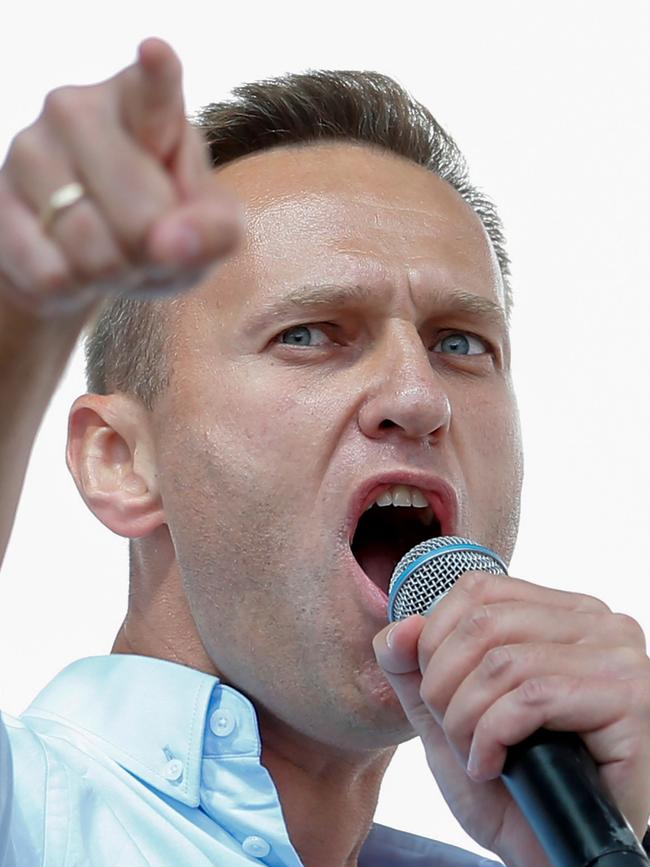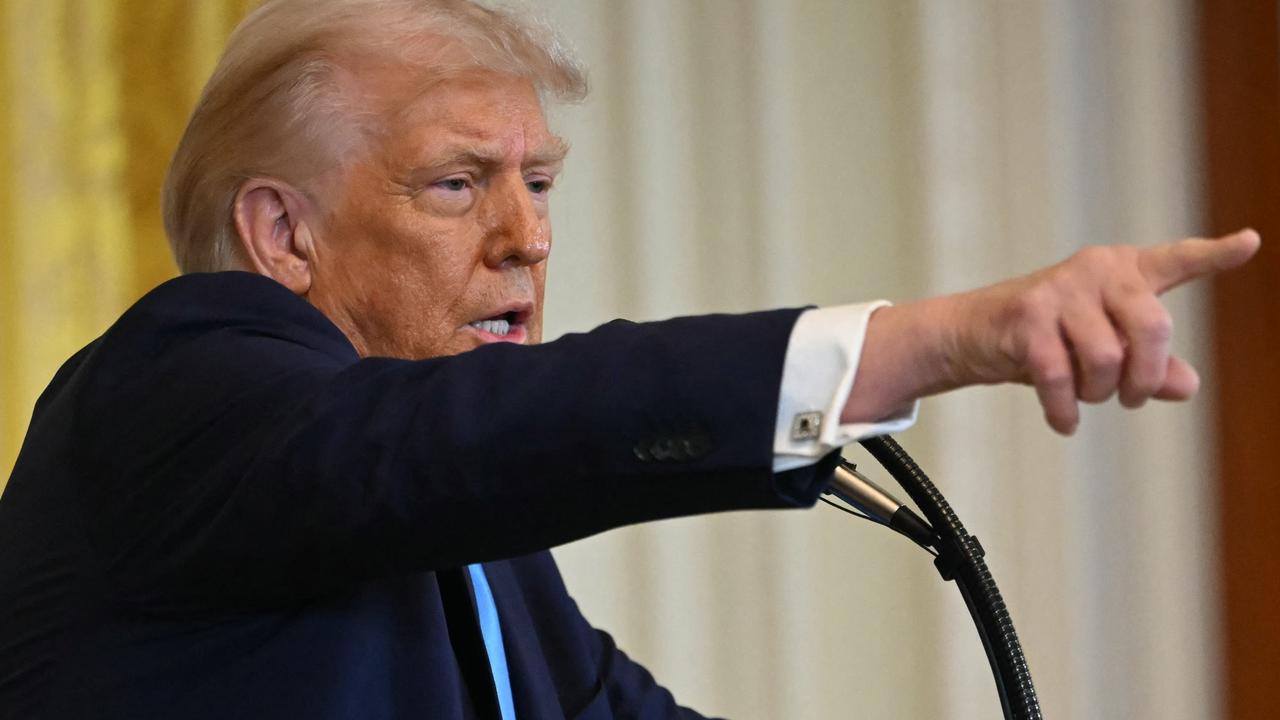Vladimir Putin critic ‘life at risk’ unless airlifted to Germany
Doctors say Alexei Navalny can’t be moved from the Siberian hospital where he is being treated for suspected poisoning.

Russian doctors say Kremlin critic Alexei Navalny cannot be moved from the Siberian hospital where he is being treated for suspected poisoning, putting his life at risk, his spokeswoman said on Friday.
An air ambulance, dispatched to fly the 44-year-old lawyer and anti-corruption campaigner to Germany for treatment, was due to land last night in Omsk.
“The chief doctor stated that Navalny is not transportable. Condition is unstable,” his spokeswoman Kira Yarmysh said on Twitter.
“It is deadly to remain in the Omsk hospital without equipment or a diagnosis.
“The ban on the transportation of Navalny is an attempt on his life, which is being made right now by doctors and the deceitful authorities who sanctioned it.”
Mr Navalny, who is among President Vladimir Putin’s fiercest critics, was hospitalised in Omsk after he lost consciousness while on a flight and his plane made an emergency landing.
Doctors said they were working to save his life after he went into a coma and was put on a ventilator in intensive care.
There has been no official diagnosis of his condition, but his supporters believe he was poisoned because of his political activities.
A spokesman for Mr Putin said the decision not to evacuate Mr Navalny was based only on medical grounds. “This is a question of a purely medical decision,” Dmitry Peskov said after Mr Navalny’s wife Yulia made a direct appeal to Mr Putin to allow him to be transferred to Germany.
The air ambulance left Nuremberg early on Friday to collect Mr Navalny after Chancellor Angela Merkel extended an offer of treatment. “I hope that he can recover and … he can receive from us all the help and medical support needed,” Mrs Merkel said in a news conference with French President Emmanuel Macron at Bormes-les-Mimosas, southeastern France.
Mr Navalny’s team has said that the hospital in Omsk is ill-equipped and his doctor Anastasia Vasilyeva said she had asked for the Kremlin’s help to transfer him to a European clinic.

Mr Peskov wished Mr Navalny a “speedy recovery” and said claims of poisoning were “only assumptions” until tests proved otherwise. Ms Yarmysh claimed Mr Putin was responsible for poisoning Mr Navalny, saying: “Whether or not he gave the order personally, the blame lies with him.”
She claims Mr Navalny’s tea was poisoned on Thursday.
Mr Navalny’s wife travelled to visit him in the city about 2200km east of Moscow. Police and investigators had also arrived and FSB security service agents were at the hospital.
Mr Navalny has suffered physical attacks in the past, including a 2017 incident where he endured chemical burns to his eye after green dye was splashed on his face. Last year Mr Navalny said he suspected poisoning when he suffered rashes and his face became swollen while serving a short jail term after calling for illegal protests.
A charismatic lawyer and whistleblower, Mr Navalny has been travelling the country to promote a tactical voting strategy to oppose pro-Putin candidates in regional elections in September.
He went to Siberia to help opposition candidates.
Thursday’s incident follows several infamous poisonings of Kremlin critics in the past.
Britain named two Russian spies as suspects after Russian double agent Sergei Skripal and his daughter Yulia were poisoned with the nerve agent Novichok in the English city of Salisbury in March 2018.
Former Russian security service agent Alexander Litvinenko was fatally poisoned with radioactive polonium in a cup of tea in London. Russia refused to extradite chief suspect Andrei Lugovoi, who became a nationalist MP after the 2006 attack.
AFP






